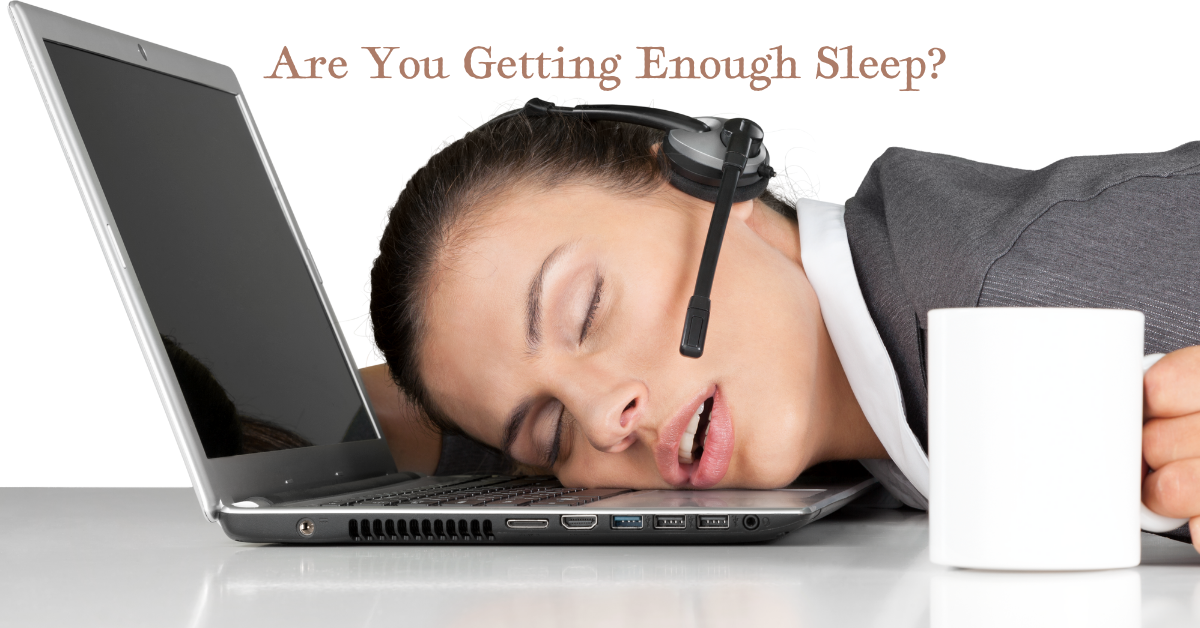You spend roughly one third of your life asleep. Sleep is a very important part of your life because it affects every other part of your life. Just try going without sleep for a few days and see what happens to you physically and mentally!
While many people with sleep disorders are well aware of their difficulties, there are many others that have sleep disorders, but don’t realize it. Could you be one of the 70 million people in the US alone that suffer from a sleep disorder?
Let’s find out.
There are several symptoms that suggest you might be suffering from a sleep disorder:
- Tired even after a full night of sleep. Do you still feel tired after you’ve gotten at least seven hours of sleep? Try to keep track of the time you fall asleep and when you wake up. If you’re getting at least seven hours of sleep and still feel tired, this is a strong indication that you might have a sleep disorder.
- Loud snoring, gasping, or you stop breathing during sleep. Does anyone tell you that you snore loudly? Or that you stop breathing during the night? Do you gasp for breath in your sleep? You might have sleep apnea. Sleep apnea can also cause excessive fatigue since you’re not sleeping well.
- Fall asleep at the wrong times. Do you find yourself nodding off at work or in front of the TV in the early evening? This is another sign that your normal sleep is disturbed in some way.
- Difficulty falling asleep or can’t stay asleep. If you have either of these issues for more than a month, you may have a sleeping disorder. Waking up early and not being able to fall back asleep can also be a sign of depression.
Do any of these symptoms seem familiar? If so, you might have a sleeping disorder. The first step is to ensure that you’re getting enough time in bed each night. If that’s not the issue, it might be time to schedule an appointment with your doctor.
There are five primary types of sleep disorders:
- Sleep apnea. Sleep apnea occurs when breathing isn’t continuous during the night. This can either be due to an obstruction in the airway or a lack of coordination between the brain and the muscles involved in breathing. I have known someone with this condition. They would forget to breathe while they were asleep.
- Insomnia. This is a difficulty in falling asleep or staying asleep. There are many potential causes of insomnia, including stress and hormonal issues. I have experienced this first-hand. I get ready to go to bed and realize that I’m just not sleepy. After hearing every car and truck drive by and even a few trains, I realize that I am wide awake.
- Parasomnias. These are unusual behaviors that occur during sleep. These include:
- Teeth grinding
- Bedwetting
- Sleepwalking and sleep talking
- Nightmares
- Narcolepsy. This sleep disorder involves falling asleep very quickly when you should be awake. At the most extreme, a narcolepsy sufferer could suddenly fall asleep while driving. More mild cases might involve suddenly excusing yourself from the dinner table and lying down for a nap. I had a boss once who suffered from narcolepsy. I was his administrative assistant. I noticed that while he was dictating a letter to me sometimes he would just start snoring because he fell off to sleep even if it was in the middle of a sentence.
- Restless leg syndrome. This sensation is hard to describe if you’ve never experienced it. It feels similar to your foot or leg falling asleep. It’s not quite the same prickly feeling, but it’s close. It’s a very uncomfortable tingle. You also have an uncontrollable urge to move your legs to relieve the discomfort. I have also experience restless leg syndrome before. It is not a good feeling. It seems like all you can do is wait for it to pass.
Sleep disorders can range from mildly annoying to dangerous. You can’t live indefinitely without sleep, and the quality of your sleep impacts your health and the rest of your life.
If you think you might have a sleep disorder, make an appointment with your physician. You might find yourself spending a night in a sleep laboratory!
Sleep makes up a third of your life. It’s important to get it right!
I hope this article was helpful to you. You can go even deeper! Give me your best email address, and your first name to get my eBook and Worksheet: “Understanding Sleep Disorders and the Impact on Your Health and Your Life.” CLICK THE LINK BELOW to Download and Get your copy today!
https://mailchi.mp/fd8e617d1f29/understanding-sleep-disorders

